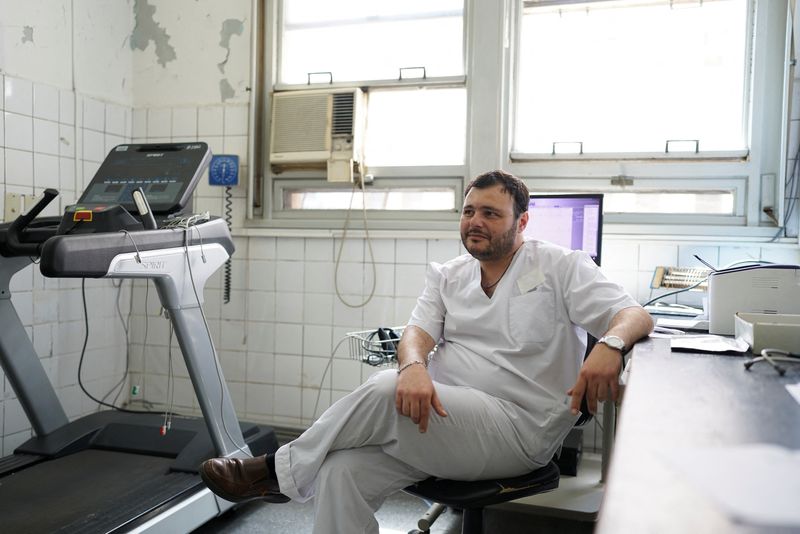By Lucila Sigal
BUENOS AIRES (Reuters) - Ada, a severely anemic 83-year-old Argentine woman, waited for six months to get an appointment to operate on a heart blockage due to a lack of supplies and a web of bureaucracy that could have cost her life.
Cases like Ada's are becoming more common amid deep spending cuts by libertarian President Javier Milei, who took office in December promising to fix a severe economic crisis in Argentina, which is currently facing yearly inflation of 209%.
Cardiologists say there's a "perfect storm" of dwindling supplies, doctors abandoning the profession, and rising health costs endangering the field that deals with the leading cause of death in Argentina.
Demand for healthcare in public hospitals has grown in recent months in line with the growth in poverty, saturating waiting rooms while the budget is being slashed and hospitals are facing increased costs due to public utility hikes.
More than half of Argentines are now living below the poverty line.
Argentina's health ministry did not reply to a request for comment.
LENGTHY DELAYS FOR FOLLOW UPS
Ada was lucky to get treated. Her children and the doctor at a public hospital helped her speed up the process, which started in April, and she was able to get operated on in October. But now she's facing check-up delays of over three months, when they should be done monthly.
"These have been difficult months," Bibiana Brnjac, Ada's daughter told Reuters while her mother was recovering from surgery.
"We are still going through hard times because everything takes time and I think we don't have time when it comes to our hearts, especially older adults who need treatment now."
Last August, a group of cardiologists went on a 48-hour strike, refusing to place stents or perform angioplasties to protest low salaries and a lack of supplies, only attending emergencies.
Enrique Stazzone, a cardiologist at the Hospital de Clinicas, a teaching hospital that sees over 1,000 patients a day, said demand is increasing and the hospital is struggling to keep up the standard of care.
"You try to maintain the quality of care," Stazzone said, adding that it sometimes "cannot be translated into reality because the patient can't afford it."
Pablo Stutzbach, president-elect of the Argentine Society of Cardiology (SAC) said the lack of investment in healthcare and low salaries are causing an exodus of doctors bigger than the one following the 2001 economic crisis.
"A lot of well-trained doctors have left, and now doctors aren't willing to sacrifice 10 or 12 years without a life plan or the chance to advance financially," Stutzbach said.

A study by the SAC showed cardiologists in Argentina are suffering from a burnout rate of nearly 80% compared to 30% in the United States.
"We don't know how much longer we can last," Stazzone said. "It's a tough question because the other side of that is if we don't, it means people's lives."
(Report by Lucila Sigal; Writing by Alexander Villegas; Edited by Nicolás Misculin and Sharon Singleton)
